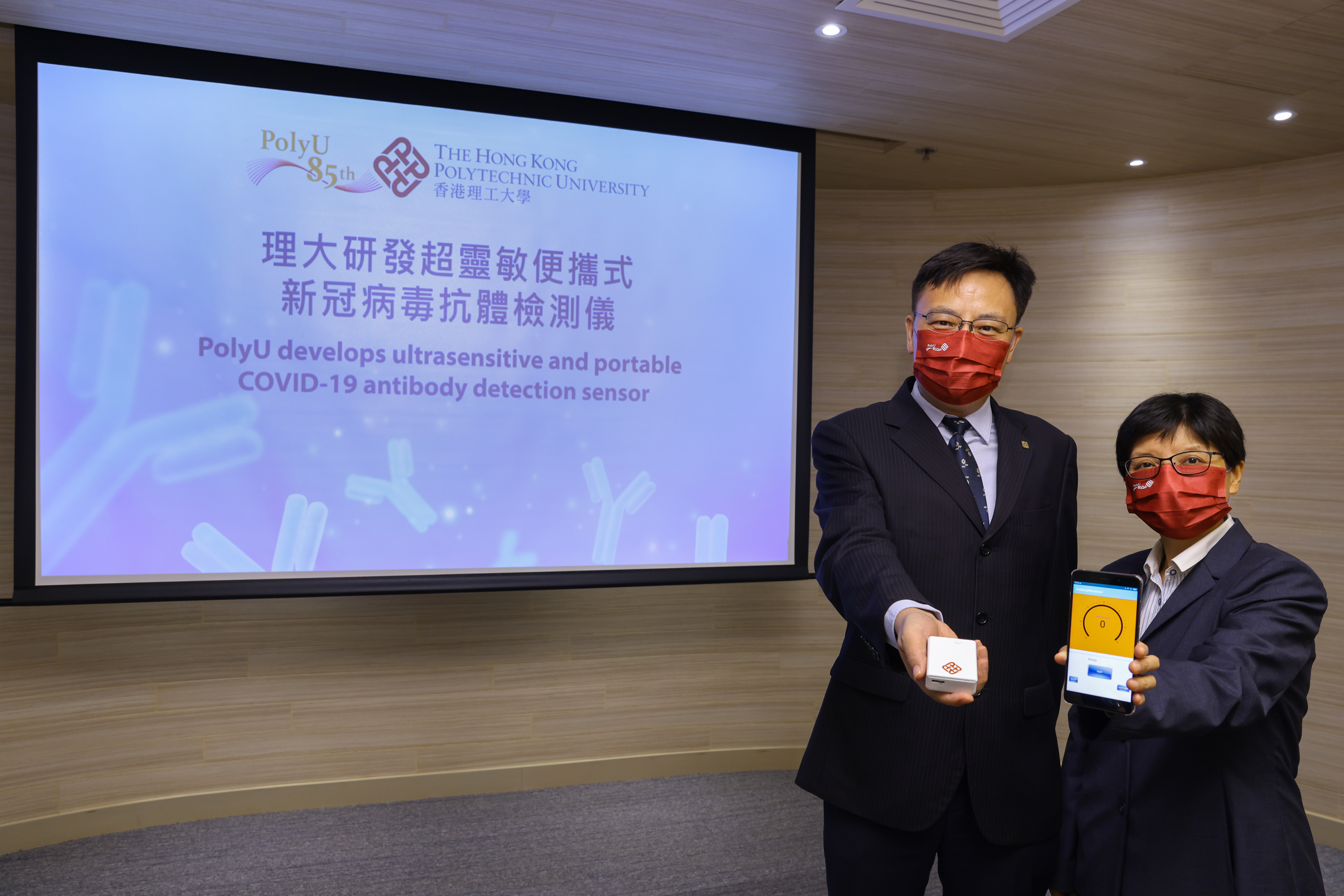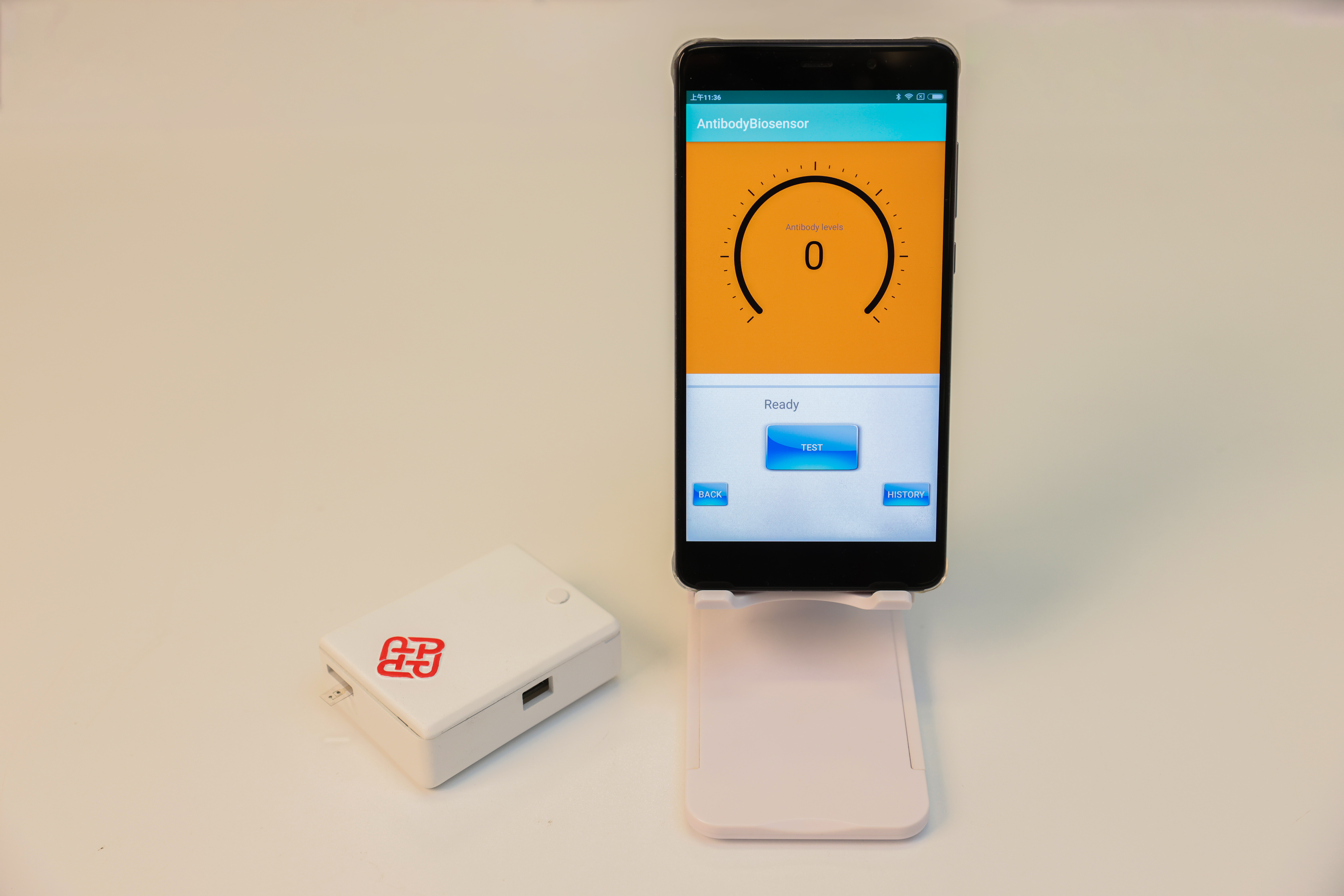PolyU develops ultrasensitive and portable detection sensor for rapid, easy and low-cost COVID-19 antibody test
- Written by Telegraph Magazine
HONG KONG SAR - Media OutReach - 26 May 2022 - As the outbreak of the COVID-19 pandemic has continued for over two years, a fast and accurate antibody detection method can help assess the antibody content of the human body, as well as provide reference data for healthcare departments to formulate appropriate vaccination measures.
In the long run, the antibody content data can also contribute to epidemiological studies and vaccine development. In view of this, a research team from the Department of Applied Physics of The Hong Kong Polytechnic University (PolyU) has successfully developed an ultrasensitive and portable COVID-19 antibody detection sensor based on organic electrochemical transistor (OECT) technology. Fast and easy-to-use, the sensor is designed for testing the antibody levels of people who have either received vaccination or have been infected with the virus.
A research team from the Department of Applied Physics of PolyU has successfully developed an ultrasensitive and portable COVID-19 antibody detection sensor. Present at the press conference were Professor Feng YAN (left), Professor of the Department of Applied Physics, PolyU; and Dr Helen LAW (right), Associate Professor of the Department of Health Technology and Informatics, PolyU.
Currently, the detection of SARS-CoV-2 immunoglobulin G (IgG) is based on enzyme-linked immunosorbent assay (ELISA) testing of serum samples. Such testing requires the use of bulky medical equipment and can only be performed in hospitals or specialised testing laboratories. It takes about two days to acquire the test results and the cost is high. There is an alternative rapid method based on lateral flow immunoassay (LFIA) testing. However, the sensitivity of this method is lower and incapable of showing the actual level of antibody content.

The COVID-19 antibody detection sensor developed by the PolyU research team comes with an array of advantages – it is highly sensitive, portable, rapid, easy-to-use and low-cost.
The COVID-19 antibody detection sensor developed by the PolyU research team comes with an array of advantages – it is highly sensitive, portable, rapid, easy-to-use and low-cost. The testing procedure is very simple. First, turn on the sensor and connect it to the smartphone app via Bluetooth. Then, drop 10uL of a saliva (or serum) sample on the transistor test area to allow the antibody-antigen reaction. Wait for five minutes, then extract the saliva sample and add an electrolyte drop on the test area. Press the button on the smartphone app to start the test. After about 20 seconds, the app will display the antibody content level of the saliva sample.
The whole detection process takes less than six minutes and the cost per test is only about HK$10.
The antibody detection sensor can test the concentration of antibodies from lower than 10fM to higher than 100nM. The detection limit satisfies the needs of exquisite analytical sensitivity for saliva.
Principal Investigator of the study, Professor Feng YAN, Professor of the Department of Applied Physics at PolyU, said, “Our research team developed a novel technology by applying voltage pulses on the gate of the sliced transistor to accelerate the incubation process resulting in a significant decrease in the overall detection time. Since the detection process is non-invasive, using only saliva instead of blood, self-sampling is highly possible. Moreover, the operation and result reading are very simple with the use of a smartphone, and hence the sensor is suitable for instant detection and large-scale screening scenarios.”
The next plan of the research team is to apply for funding for clinical studies in collaboration with different medical and testing institutions. The research team expects that the novel device can be commercialised as soon as practicable and applied for antibody detection of other viruses, helping to fight diseases and making contributions to epidemiological studies and vaccine development.
#PolyU











